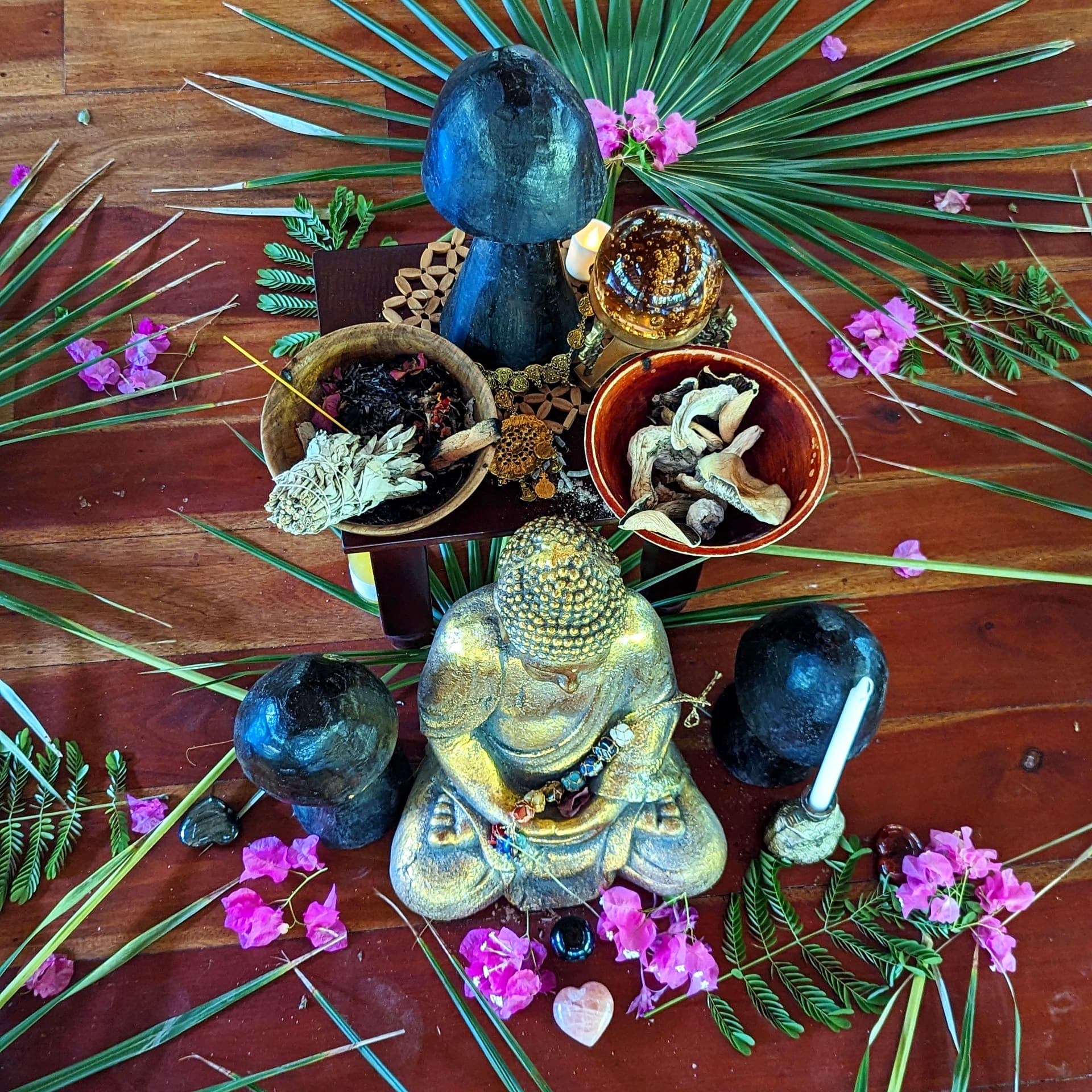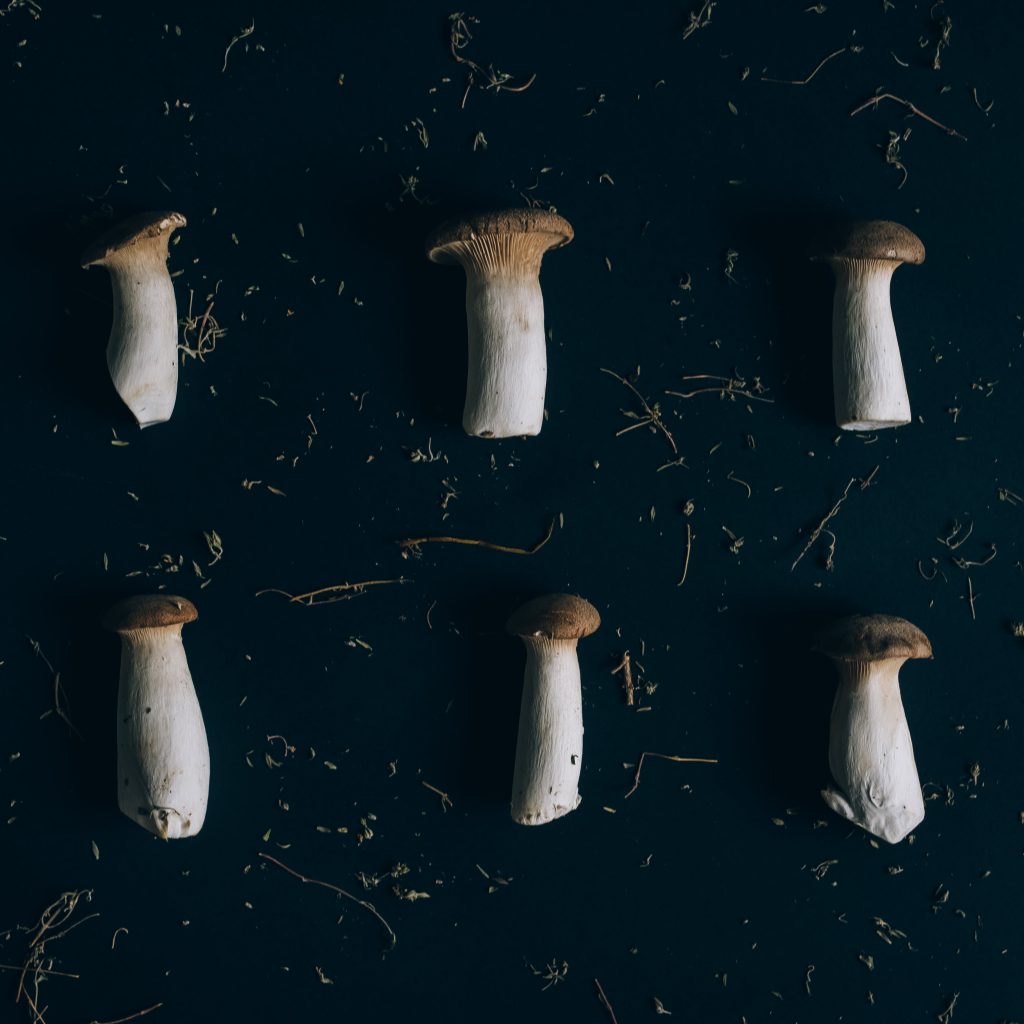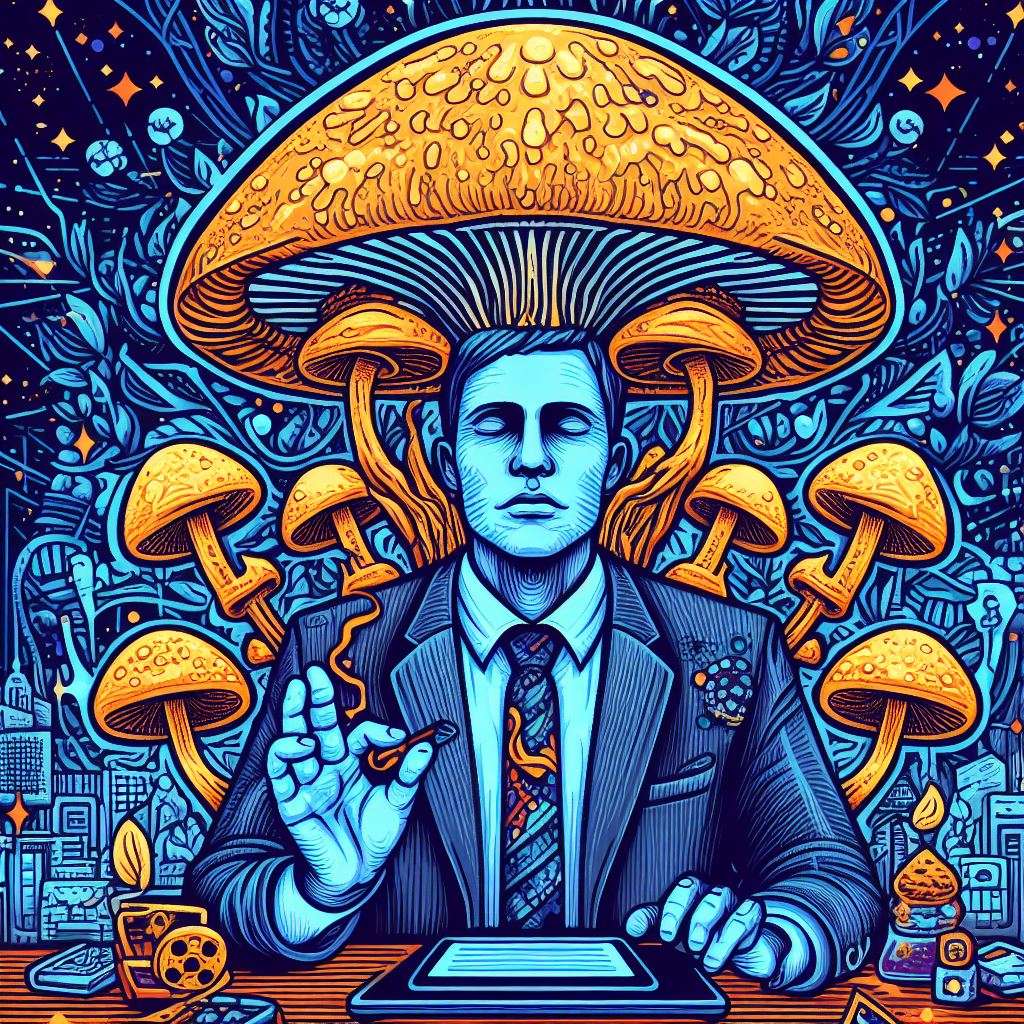Have you ever felt like the world’s weight is pressing down on your shoulders and no matter what you do, you can’t seem to shake off the gloom? You’re not alone. This feeling, often described as a cloud that won’t lift, is a daily reality for millions. It’s called depression, a term we’ve all heard but might not fully understand. There’s a lot of confusion out there about what depression really is. Some think it’s just a case of the blues that you can snap out of with a little effort. But it’s far more complex and challenging than that.
Depression isn’t just feeling sad. It’s a serious condition that affects your ability to feel, think and handle everyday activities. Imagine being stuck in a loop of negative thoughts and emotions, finding little to no joy in the things you used to love. That’s the reality for those battling depression. And while treatments exist, from therapy to medication, not everyone finds the relief they desperately seek. This is where our story takes an intriguing turn.
Enter psychedelics, substances that have been around for centuries but are only now being recognized for their potential in mental health treatment. Among them, psilocybin, a naturally occurring compound found in certain mushrooms, is stealing the spotlight. Far from the recreational drug stigma it once carried, psilocybin is emerging as a beacon of hope for those with depression.
You might be wondering, “Are psychedelics the answer we’ve been looking for?” Let’s be clear: this isn’t about trading one issue for another. The interest in psychedelics for depression isn’t about escapism; it’s about healing. Under controlled, clinical conditions, psilocybin has shown remarkable promise in alleviating the heavy fog of depression, offering a glimpse of a life reclaimed.
But, as with any treatment, it’s not a one-size-fits-all solution. And that’s exactly what we’re diving into today. By peeling back the layers of misinformation and exploring the facts, we’ll discover together how psychedelics like psilocybin could complement existing treatments, offering new hope to those who felt they’d run out of options. So, if you’re ready, let’s embark on this journey together, exploring the potential of psychedelics in the fight against depression.
Understanding Depression
Imagine, if you will, walking through life with an invisible weight strapped to your back. Some days it’s just a nuisance; on others, it’s so heavy it keeps you from getting out of bed. This weight? It’s depression, a term that, despite being widely recognized, is often misunderstood.
Depression is much more than just feeling blue or having a bad day. It’s a serious condition that significantly affects how a person feels, thinks and manages daily activities like sleeping, eating, or working. It’s like being caught in a persistent fog that dims every aspect of life. Sounds challenging, right? It is, especially when you consider that about one in 15 adults will face this struggle in any given year.
Now, you might think, “But why can’t they just get over it?” The thing is, depression doesn’t work that way. It’s not a switch you can flip. For many, it’s a constant battle, one that’s often invisible to those around them. The symptoms can vary widely, from profound sadness to losing interest in activities once loved, changes in appetite, feeling sluggish or excessively restless and even having thoughts of death or suicide. It’s a spectrum and where one lands on it can change over time.
Depression can sneak up on anyone and it often does, typically making its first appearance in the late teens to mid-20s. Interestingly, it seems to affect more women than men. And if your family has a history of depression, your likelihood of experiencing it increases. This isn’t just about having a bad day or going through a rough patch; it’s a pervasive and persistent feeling that doesn’t ease up on its own.
Why is it so hard to treat depression? Well, each person’s experience with depression is unique, making a one-size-fits-all solution impossible. Traditional treatments, like medication and therapy, offer relief for many but not all. And that’s where the frustration lies. When you’ve tried everything and still feel stuck, what’s next?
This is the crux of the matter and where our journey into the potential of psychedelics begins. Keep in mind that depression’s complexity requires solutions that are just as nuanced. No one should have to got through these waters alone and the emerging research into psychedelics is a testament to the ongoing search for more effective treatments.
Introducing Psychedelics
So, let’s talk about psychedelics. The word itself might conjure images of tie-dye and the 60s, but there’s so much more to it. Psychedelics, particularly psilocybin, have been the subject of fascination, controversy and more recently, serious scientific study. Psilocybin is a natural compound found in certain types of mushrooms and it’s known for its ability to produce profound changes in perception, mood & thought.
Now, before you jump to conclusions, let’s clear up a few things. Psilocybin isn’t about escaping reality or engaging in reckless experimentation. Instead, it represents a bridge to understanding the complex nature of our minds, especially in the context of depression. Historically, these substances have been used in spiritual and healing rituals, underscoring their profound impact on the human psyche.
In modern times, the narrative around psilocybin is shifting. Far from being dismissed as mere hallucinogens, these compounds are gaining recognition for their potential medicinal benefits. But how does this fit into our conversation about depression? Well, it turns out that psilocybin might offer a new pathway for those who’ve found little relief in traditional treatments.
Research into psilocybin has shown that it can produce significant and lasting changes in the brain. These aren’t just temporary shifts in mood or perspective; we’re talking about real, measurable alterations in how the brain processes emotions and thoughts. For someone with depression, this could mean breaking free from the cycles of negative thinking that hold them back.
But here’s where it gets even more interesting. Psilocybin doesn’t work in isolation. It’s not like taking a pill and waiting for the effects to kick in. The therapeutic use of psilocybin involves guided sessions with trained professionals, where individuals are supported through their experiences. This combination of the substance itself and the supportive setting it’s used in can create a powerful catalyst for change.
It’s important to note that the goal here isn’t to advocate for self-medication or suggest that psychedelics are a cure-all. Rather, it’s to open up a dialogue about their potential role in a approach to treating depression. With ongoing research and careful consideration of the legal and ethical aspects, psilocybin could well be part of the next wave of treatments.
But let’s not get ahead of ourselves. The journey from here to there involves rigorous study, open-minded discussion & a commitment to understanding the full scope of what psychedelics can offer. The aim is to look into new possibilities, armed with curiosity and an open heart.
Psilocybin and Depression
Let’s get into a question that’s been on many minds: Can psychedelics truly help with depression? This isn’t just idle curiosity. For some, it’s a beacon of hope—a potential game-changer in the fight against a relentless shadow.
First off, it’s critical to approach this topic with a balanced view. Yes, there’s skepticism. It’s understandable. After all, suggesting psychedelics for mental health can raise eyebrows. But let’s set aside preconceived notions and explore what research tells us.
Imagine for a moment the brain as a vast network of pathways, many of which are well-trodden, familiar routes. Depression, in this analogy, is like a roadblock on these paths, disrupting the flow of thoughts and emotions. What psychedelics, particularly psilocybin, seem to do is open up new routes. They don’t bulldoze the roadblock but offer alternative pathways, creating opportunities for thought patterns that aren’t dominated by the fog of depression.
Studies, including those by leading institutions like Johns Hopkins Medicine, have started to paint a promising picture. Participants in psilocybin therapy sessions have reported significant reductions in depressive symptoms, with some benefits lasting longer than traditional treatments. But what’s truly fascinating is how this happens.
Psilocybin appears to facilitate a more profound connection between different brain regions. This doesn’t mean it’s simply making you “happy” at the moment. Instead, it’s like hitting the reset button, offering a fresh perspective that many with depression struggle to find. It’s about breaking free from the chains of repetitive negative thoughts and seeing the world & oneself, in a new light.
The therapy sessions themselves are unique experiences. They’re not about passive consumption but active engagement with one’s inner world. Guided by professionals in a controlled, supportive environment, individuals are encouraged to drive their thoughts and emotions, often leading to insightful breakthroughs.
However, it’s not all smooth sailing. The journey can be intense, bringing to the surface emotions and memories long buried. That’s why the role of the guide is crucial, helping cruising these waters safely.
But here’s the kicker: The effects of psilocybin aren’t just about what happens during the session. Many report lasting changes in their outlook and mood long after. It’s as if the experience provides a new set of tools for dealing with life’s ups and downs, reducing the overall weight of depression.
It’s important to note, however, that psilocybin isn’t a magic pill. It’s a tool so like all tools, its effectiveness depends on how it’s used. The setting, the preparation, the follow-up—it all plays a part. And while the research is promising, it’s also in its early stages. There’s much we still don’t understand.
So, what’s the takeaway here? It’s that there’s potential. Potential for new treatments that offer hope where there was little. Potential for a deeper understanding of depression and how we can better support those who live with it every day.
Let’s continue with open minds and compassionate hearts, acknowledging the complexity of depression and the diverse needs of those it affects. The journey is far from over, but with each step, we’re moving closer to a world where the weight of depression is a burden no one has to carry alone.
Research and Evidence
Peeling back the layers of skepticism and curiosity surrounding psychedelics, especially psilocybin, it’s time to focus on the heart of the matter: the evidence. What does the research really say? Are we on the brink of a major shift in how we approach treatment for depression?
The past few years have seen a surge in studies dedicated to understanding the impact of psilocybin on depression. Institutions renowned for their rigorous scientific inquiry, like Johns Hopkins Medicine, have been leading the charge. Their findings? They’re not just promising; they’re revolutionary in the context of mental health treatment.
One of the most compelling aspects of this research is the longevity of the benefits reported. Unlike traditional antidepressants, which must be taken daily, psilocybin therapy sessions are infrequent yet offer lasting effects. Participants in these studies have reported significant decreases in depressive symptoms, with some experiencing relief for months after just a single session.
But how does psilocybin achieve this? The science points to its ability to ‘reset’ certain brain circuits involved in depression. Psilocybin seems to promote increased connectivity between different regions of the brain, breaking down the patterns of negative thought and rumination that are hallmarks of depression. It’s as if the brain’s rigid pathways, which keep a person locked in a depressive state, become more flexible, allowing for new thoughts and emotions to emerge.
This isn’t just about feeling better in the moment. The changes in brain activity and structure suggest a profound and lasting shift in how individuals process the world around them. For many, it’s akin to lifting a veil, allowing them to see life through a clearer, more hopeful lens.
The clinical trials are equally impressive. In controlled settings, with professional support, psilocybin has been administered to participants who had not responded to traditional treatments. The results? Many reported improvements that far exceeded their expectations, with a significant number maintaining these improvements over time.
But let’s be clear: while the evidence is encouraging, researchers are quick to point out that psilocybin is not a panacea. It’s a tool—one that, when used correctly, can offer a new avenue for relief to those who have felt trapped by their depression.
As this research continues, the potential for psilocybin to change lives is becoming harder to ignore. It’s not just about the alleviation of symptoms; it’s about fundamentally altering the trajectory of mental health treatment. The promise of psilocybin lies in its ability to offer a new perspective, a break from the cycle of depression that so many have been searching for.
In the end, the most powerful message from the research might be one of hope. For those who have sailed the dark waters of depression, often feeling isolated and without options, the emerging science around psychedelics lights a path forward. It suggests that change is possible, that healing is within reach and that our understanding of mental health is evolving in exciting and unexpected ways.
How to Safely Use Psychedelics
Psychedelics present a new frontier in mental health treatment —one filled with potential but also with the need for caution. If you’re considering psilocybin or other psychedelics as part of your journey towards healing, it’s crucial to approach this path with knowledge and understanding. Here’s a guide to engaging with psychedelics safely and responsibly.
Seek Professional Guidance
First and foremost, don’t go it alone. The importance of professional guidance cannot be overstated. This means consulting with mental health professionals who are knowledgeable about psychedelic therapy. They can help determine if this form of treatment is right for you, considering your medical history, mental health status and specific needs.
Research Legal and Safe Channels
The legality of psychedelics varies greatly by location and context. In some places, like certain retreat centers in countries where psilocybin is legal, you can experience psychedelic therapy in a controlled, legal setting. It’s essential to research and choose options that are both safe and legal to ensure your well-being throughout the process.
Understand the Process
Psychedelic therapy isn’t just about the substance—it’s about the entire process. This typically includes several stages, such as preparation, the psychedelic experience itself and integration afterward. Knowing what to expect at each stage can help you feel more prepared and secure in your journey.
Engage in Thorough Preparation
Preparation involves both mental and physical readiness. Mental preparation might include sessions with a therapist to discuss your intentions, fears and hopes for the experience. Physically, you might be advised to follow specific dietary guidelines or practice relaxation techniques to ready your body and mind.
Experience with Support
During the psychedelic experience, it’s paramount to be in a safe, comfortable environment, ideally with a trained guide or therapist present. This supportive presence can help guide the emotional and psychological depths that psychedelics can reveal, ensuring a safe and therapeutic experience.
Prioritize Integration
Perhaps the most crucial part of engaging with psychedelics is the integration phase—making sense of and applying insights from your experience to your daily life. This often involves follow-up sessions with a therapist who can help you process and integrate these insights in a way that promotes healing and growth.
Approach with an Open Mind and Realistic Expectations
Lastly, approach the experience with an open mind and realistic expectations. Psychedelic therapy can offer profound insights and relief for some, but it’s not a guaranteed cure. Healing is a personal journey, one that requires patience, openness and a willingness to confront and work through deep-seated issues.
The journey towards mental health can be complex, with many paths leading towards healing. For those considering psychedelics as part of this journey, it’s essential to proceed with caution, respect and an informed perspective. By understanding the process, engaging with professionals and prioritizing safety and legality, individuals can explore the potential of psychedelics in a way that is both healing and transformative. Remember, you’re not alone on this journey and help is always available as you cross this new terrain.
Practical Advice
If you’re considering the journey into psychedelics for mental health, it’s like standing at the edge of a vast and unfamiliar landscape. It’s beautiful, intriguing, and admittedly, a bit daunting. Before you take that first step, here are some pieces of practical advice to guide you on your path. Remember, this journey is as much about the inner world as it is about the external steps you’ll take.
Do Your Homework
Before anything else, become a student of the subject. Read up on the latest research, understand the different types of psychedelics, and familiarize yourself with both the potential benefits and the risks. Knowledge is power, especially when it comes to altering your mental state.
Consider Your Setting
The environment in which you experience psychedelics can significantly affect your journey. A safe, quiet, and comfortable setting is crucial. If you’re exploring this in a therapeutic context, ensure it’s with a certified practitioner who can offer a controlled and supportive environment.
Set Your Intentions
Why are you embarking on this journey? What do you hope to achieve? Setting clear intentions can help guide your experience and provide focus. Share these with your guide or therapist, as they can tailor the session to meet your goals.
Prepare for the Aftermath
The effects of psychedelics don’t end when the session does. There might be a period of adjustment as you process your experience. Plan for this by ensuring you have time to reflect and relax afterward. You might also find journaling or subsequent therapy sessions helpful in integrating these experiences into your life.
Have a Support System
Having someone to talk to about your experience can be incredibly grounding. Whether it’s a trusted friend, family member, or therapist, ensure you have a support system in place. This journey can stir up a lot of emotions, and having someone to share them with is vital.
Keep an Open Mind but Stay Grounded
Approach your psychedelic journey with an open mind, ready to explore whatever comes up. However, staying grounded in reality is equally important. Remember, while psychedelics can offer profound insights, they’re part of a larger toolkit for mental wellness. They’re not a magic solution but a step in your broader journey of healing and self-discovery.
This is a path that offers potential healing and growth but also comes with its challenges. By approaching this journey with care, mindfulness, and the support of professionals, you’re setting the stage for a transformative experience. Remember, you’re the protagonist of this story, and you’re not alone. There’s a community of fellow travelers and professionals ready to support you every step of the way.
When to Seek Professional Help
When opting for psychedelics as a treatment for depression, it’s crucial to tread with both hope and caution. While the potential of psilocybin to offer relief where other treatments may not have is incredibly promising, it’s essential to recognize that it isn’t a universal solution for everyone. Just like a key that doesn’t fit every lock, psilocybin won’t unlock the doors to healing for every individual in the same way. So if you’re considering psychedelics as part of your journey towards mental wellness, it’s vital to approach this path with informed, professional guidance. There are specific scenarios where professional help becomes not just a suggestion but a necessity. Recognizing these moments is a step towards ensuring not only the effectiveness of the treatment but, most importantly, your safety.
The Potential of Psychedelics in Mental Health
It’s clear that the conversation around psychedelics, especially psilocybin and their role in treating depression is just beginning. What started as a journey into the unknown has unveiled a landscape filled with both promise and caution, innovation and the need for continued research.
The evidence we’ve seen, underscored by groundbreaking studies and personal testimonials, points to a future where psychedelics could play a crucial role in mental health treatment. Psilocybin, with its potential to offer relief and new perspectives to those battling depression, stands at the forefront of this shift. It’s not just about alleviating symptoms but about fostering a deeper understanding of the self and the world.
However, this isn’t a solo journey. The path towards integrating psychedelics into treatment is one we walk together, guided by the expertise of professionals, the rigor of research and the stories of those who’ve experienced their effects firsthand. It’s a path marked by hope, but also by the responsibility to proceed with care and respect for the complexities of mental health.
Looking Ahead with Hope and Caution
Our approach to psychedelics and mental health must be balanced. Optimism about their potential should be tempered with caution to make sure that we move forward with a commitment to safety, legality and ethical considerations. The goal is not to find a quick fix but to expand our toolkit for addressing mental health challenges, offering additional options for those who have yet to find relief.
The Importance of Ongoing Research
The journey doesn’t end here. Ongoing research is vital to our understanding of how psychedelics can be used most effectively and safely. Each study, each trial, brings us closer to unlocking their full potential, not just for treating depression but possibly for addressing a wide range of mental health conditions.
A Call to Keep the Conversation Going
This exploration of psychedelics and depression is just one part of a larger conversation about mental health. It’s a call to continue seeking out new ways to support those in need, to listen to diverse perspectives and to approach each discovery with an open mind and heart.
The potential of psychedelics to transform mental health treatment is immense, but it’s only through careful consideration, research and dialogue that we’ll truly understand their place in our journey towards healing. Let’s move forward together, with curiosity, compassion and a shared commitment to improving mental health for all.
Remember that the journey to mental wellness is personal and unique. Whether you’re considering psychedelics as a treatment option or exploring other paths, know that there’s hope and you’re not alone. The quest for understanding and healing continues and with it, the promise of brighter days ahead.






2 Comments
[…] the possibilities of psilocybin MDMA and ayahuasca as a means of treating issues such as addiction, depression, anxiety and post-traumatic stress disorders (PTSD). Companies and researchers have been in […]
[…] mushrooms cannot be ignored. As Jamaica strives to weave its story into the broader tapestry of psilocybin’s potential, measures to preserve the delicate ecosystems that nurture these fungi must be a top […]